42/43. thresholds protect what makes you feel vital
equinox invocations, a documentary review, a folded bedsheet
Hello inbox intimates—
Bundling these monthly newsletters again. Will get back to the regular monthly schedule after this. <3 Writing to you from the mouth of post-equinox and eclipse season.
We’re in a process of being swallowed into more darkness or more light, depending upon the hemisphere you presently find yourself in. Every season has in it traces of others. A reciprocity that makes me flutter my eyes—a reminder that every transition happens in waves.
One day is cold and biting rain and the next is a beach day. Tits out, nude beach, clay fountain on the side of a cliff, battering waves, pissing in the ocean. Fall has no sharp demarcations, and summer has been insisting upon itself.
In the past months, I’ve slept through an earthquake, fallen asleep to the sound of rain, inhaled smoky air from the recent wildfires here in Portugal, and contemplated how natural metaphors in writing feel flat, disrespectful even, in the midst of ongoing ecological collapse and genocide.
At a recent event at Salted Books in Lisbon, the incredible Fariha Róisín spoke about pleasure outside of capitalism—specifically, what are our sources of feeling good that don’t involve buying something or having sex? This question reaffirmed the importance of examining personal and collective relationships to consumption. She spoke about the degrowth movement, which I had not heard of before (look it up!) and how so much of our lives revolve around consuming and being consumed.
“But September would arrive one day like an exit. And September was for some reason a lighter and more transparent month.”
Clarice Lispector trans. Katrina Dodson, 2015
Although it’s now October, I have been thinking of September as an exit wound or expelling. This Clarice Lispector quote had a moment of intense circulation on social media. She was writing from Brazil—so her September was an exit from winter—the lightness and transparency implying a door into summer. But regardless of hemisphere, September was a shoulder season that required some shedding.
Recently, I was having a particularly rough day, and an older woman in the laundromat asked me to help her fold a large bed sheet. We stood facing one another and shook the sheet a couple of times. Carefully, each of us brought our corners together and turned the sheet on its side. We stepped towards one another. I handed her my corners and slid my hands down the cotton to catch the bottom. We repeated the process until the rectangle was small enough for her to finish folding.
What started as something too big for one person to handle on their own became compact and manageable. She asked for help with a second, and apologized by the third bed sheet assuring me, it’s the last one. I wanted to tell her I would help her fold ten or twenty bed sheets, however many she needed. Sentimental, I thought, maybe this is what Mary Oliver meant when she wrote “your place in the family of things.”
Review of Eros (2024) directed by Rachel Ellis
I watched this documentary on the “architectures of desire” of Brazilian pay-by-the-hour sex motels, which was screened as part of the Queer Lisboa film festival.
The film begins with the director, who, after being stood up by a date, films herself lying solo in a motel bed while muffled sounds from other rooms leak in. She and her new lover were supposed to film something there together, a kind of milestone in a new connection. Having been stood up, she got curious about who all the people were who use these motels.
I loved the structure of the film, it moved between different participants who filmed themselves, giving the documentary an intimate, voyeuristic, and at times confessional feel. The scenes were small windows into the breadth of their lives and stories. It also offered a look at the design features of the motel rooms—which, I am obsessed with! Some rooms have themes, some are overtly kitsch, and some have the appearance of standard hotel rooms. From Jacuzzis, adjustable walls between rooms allowing for mutual voyeurism, to a pool made to look like a cave, replete with a waterfall feature and remote controlled skylight. Moments of physical intimacy were punctuated by many shots of couples eating room service on glass tables.
Post-sex with his partner, a gay man reflects on what a privilege it is to be able to do it lying down. That many poor folks and queer folks are relegated to fucking in less “dignified” spaces. He then goes on to invoke Jesus (not the first time Jesus is invoked in this film).
I laughed myself into tears when he describes once standing in a line of cars with tinted windows because the motel didn’t have a walk-up entrance. And, indeed, one of the opening shots of the film shows a check-in process not unlike a McDonald’s drive-thru, touch screen and all. I thought about the levels of accessibility, privacy, and power present in these spaces.
A kinky, tatted pair joyfully explore the features and hardware of a special motel room outfitted for particular scenarios. In between moments of rough play, they brush their teeth together, embrace, and talk.
In another scene, a man hires an escort to spend the night with him. He wants to tell her his life story—I see reticence flicker in her eyes—clients who want to talk, unload, and get philosophical about the nature of the experience can be labor-intensive in a different way. But the interaction was sweet—she also opens up to him a bit about her life and the number of people who depend upon her. He says something at the end of their session—about sex work being sublime, recognizing that the fleeting nature of it is perhaps what makes it sacred.
Surprisingly (or not) these motels are frequented by a number Evangelicals. A devout couple confess that they love coming to hotels to get a break from their kids, to sleep, to have sex, and to enjoy the room with a pool. They comment that, by virtue of their presence, every space they set foot in becomes a holy place.
I loved this unexpected crossover—between church and motel—two parallel institutions I also had contact with as an eighteen-year-old living in Salvador da Bahia, Brazil. In another essay or newsletter, I’ll go a little deeper. But for now I’ll just say, this film was deeply resonant to multiple threads of my life, as a half-Brazilian woman, as an artist, as a lover.
The film ends with a jarring and poignant performance from a solo man—who, at first, I thought might have been the lover who stood up the director at the beginning. He flips through porn channels, dances naked, recites poetry, eats pizza, invokes bell hooks. This created a beautiful bookend with the beginning of the film; “We come into this world alone, and we leave it alone,” director Rachel Ellis said at the Queer Lisboa screening. She also shared that initially this participant who appears in the final scenes was slated to participate with someone. When things ended with that lover, he decided that he would still be a part of the project, but on his own.
This was the kind of viewing experience that stayed with me long after I left the theater. Eros is thought-provoking, subtle, intimate, tender, at times hilarious, at times problematic, at times jarring and sad. It’s a touching reminder that what happens behind closed doors, deep in the labyrinth core of a sex motel, inevitably reflects and amplifies society’s undercurrents and dynamics—desire, loneliness, incarceration, race, class, queerness, religion, and sex work, just to name a few. This documentary simultaneously reaffirms and challenges perceptions of who might use these motels, and why.
Oh, another takeaway lamented by a participant: the motels should include a few gay porn channels on their TVs!
~
Equinox invocations:
May small acts of kindness and mercy from your friends make you wonder what you did in a past life to be so blessed in this one.
May subtle shifts in the air temperature remind you of things you thought you’d long forgotten.
May you light a candle and observe how a small flame can dramatically alter the vibration of a room.
May you resist the everyday temptation to resign yourself to the world as it is, and instead rigorously imagine the world anew, again and again.
~
The work of our indie imprint Working Girls Press continues!
Two beautiful reviews of our debut publication, The Holy Hour: An Anthology on Sex Work, Magic, and the Divine have been published!
Dreaming Collective Futures: A Review of The Holy Hour by Annie Lou Martin in Petit Mort
Review on Tryst by miss mirage
If you are interested in a review copy, please reach out! And, if you are in the Pittsburgh area, check out our free event on October 16th— a launch and live podcast taping in partnership with Stay Gold Books and When We’re not Hustling hosted by Jessie Sage.
~
Thank you, as always, for spending a slice of your day with me and these musings. Have a wonderful week and remember to always protect what makes you feel vital. x

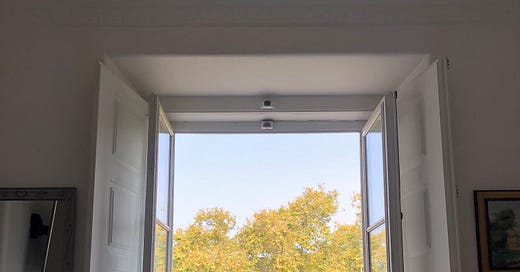



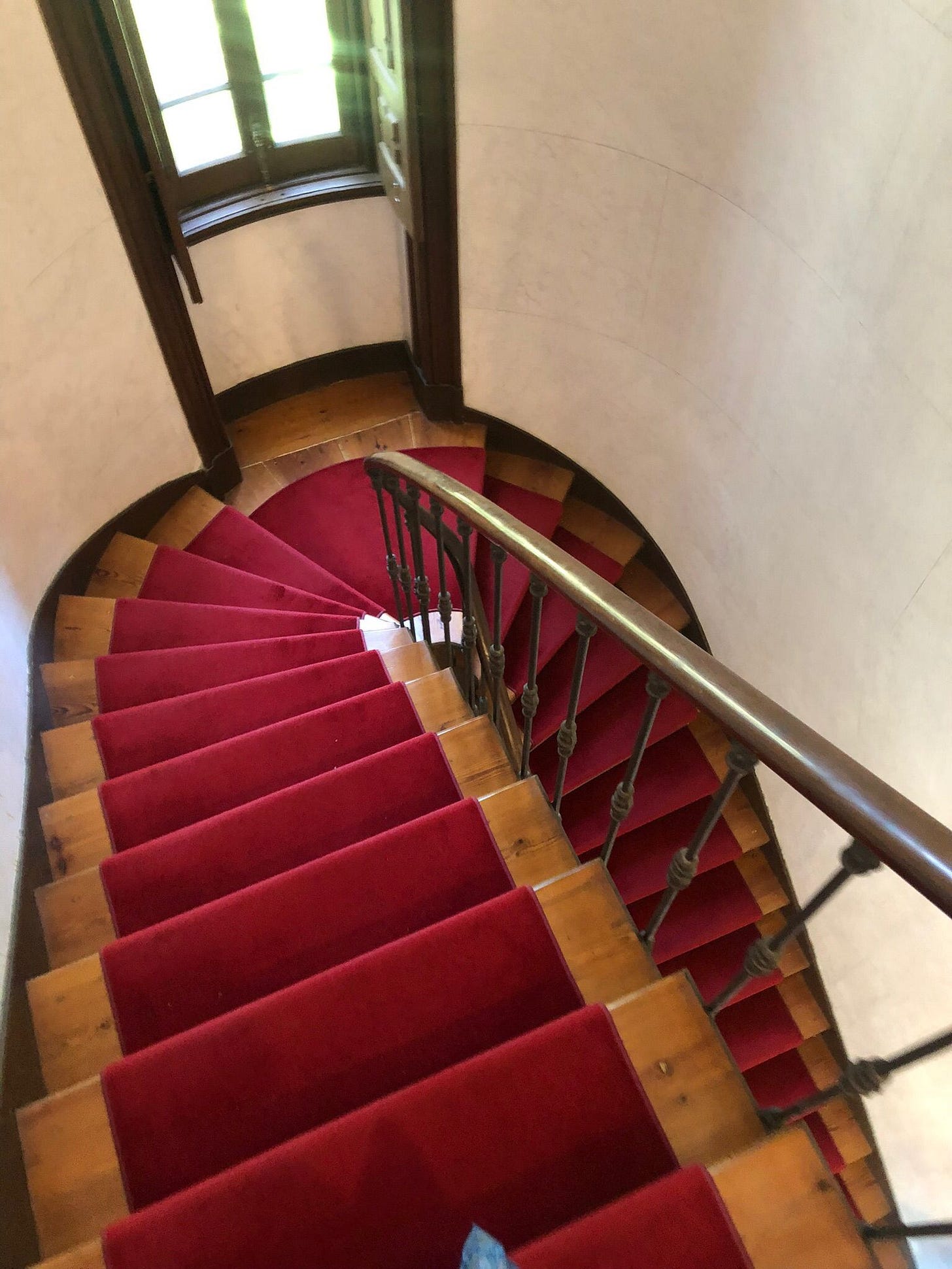
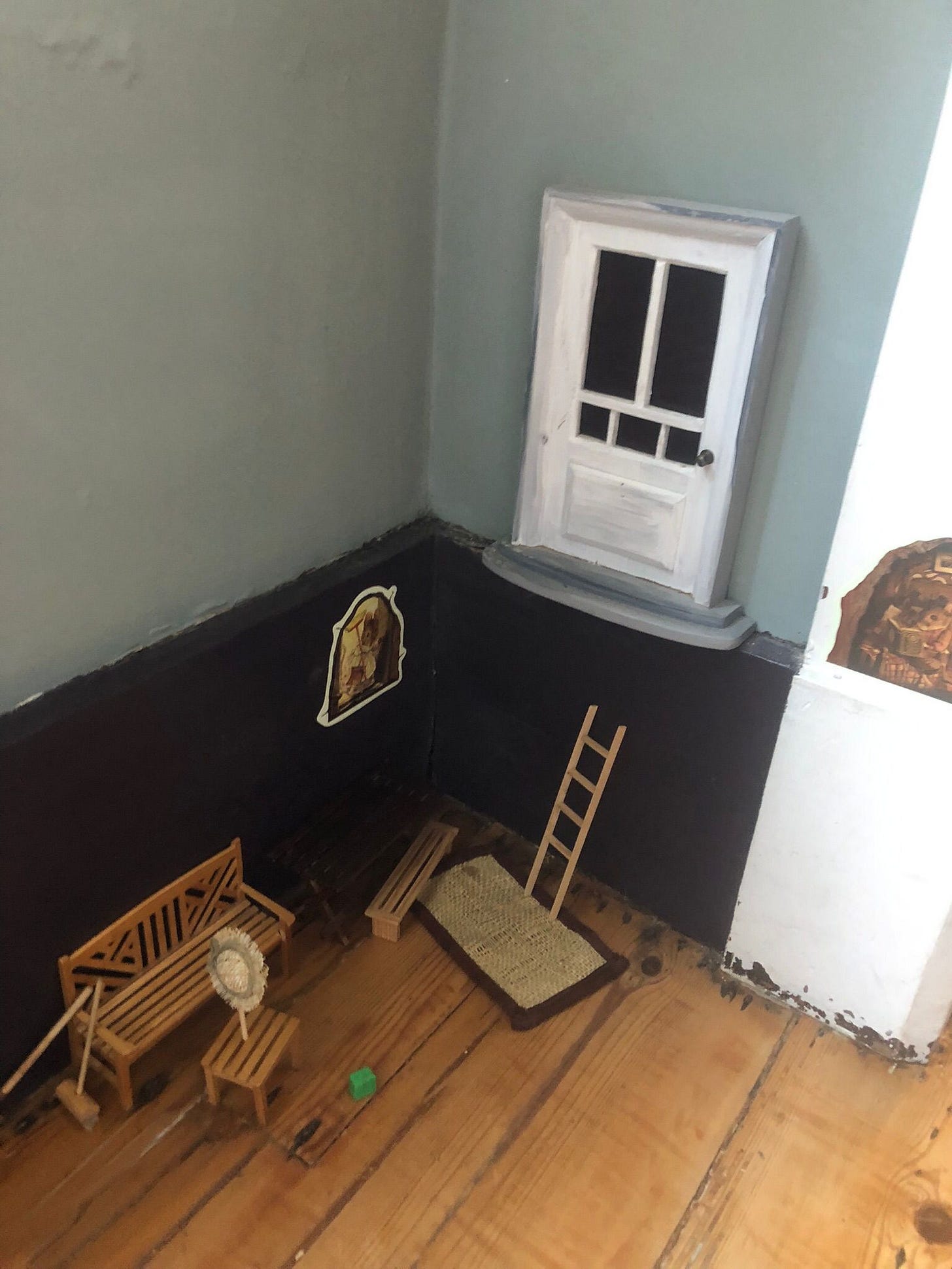
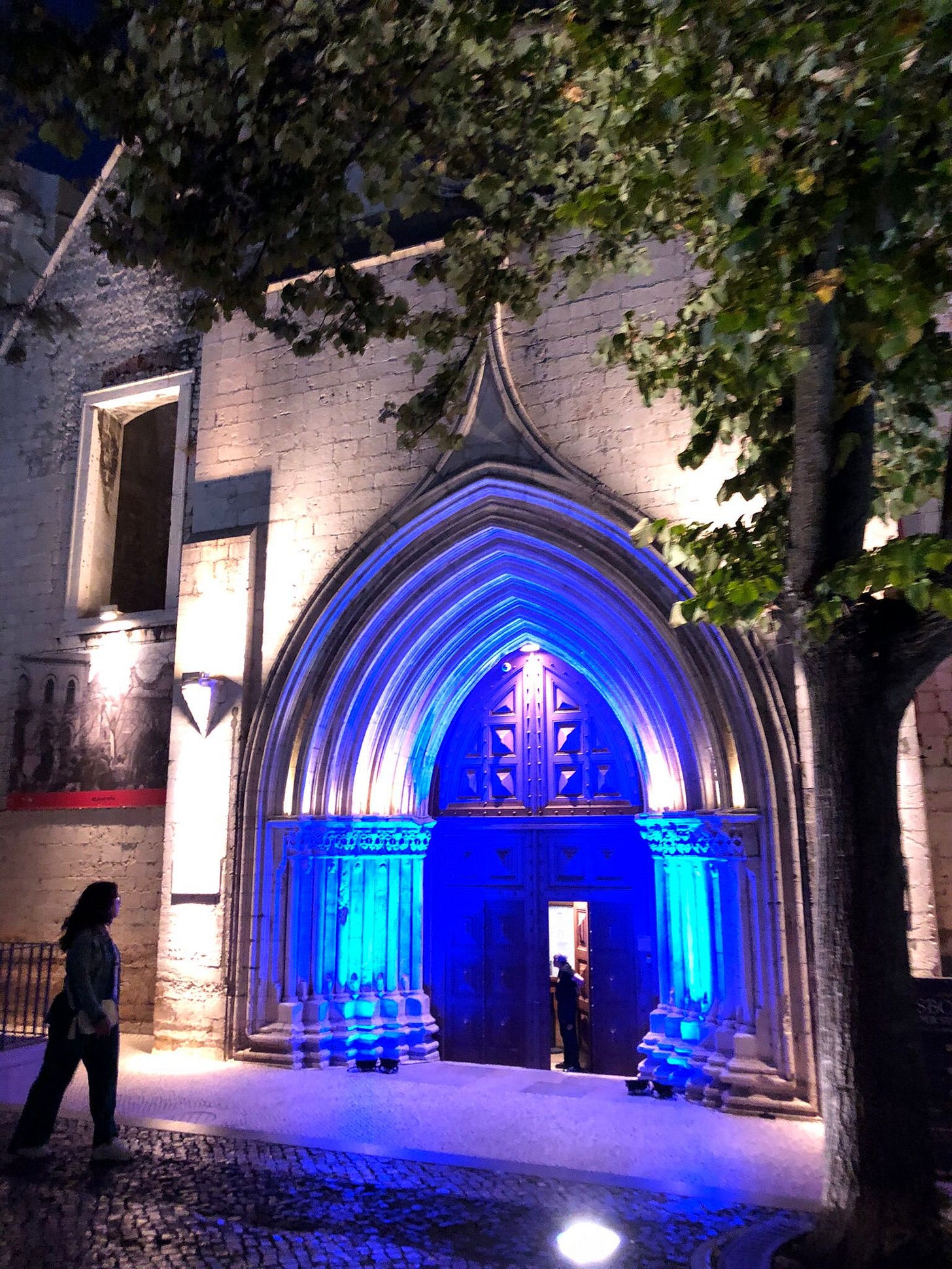


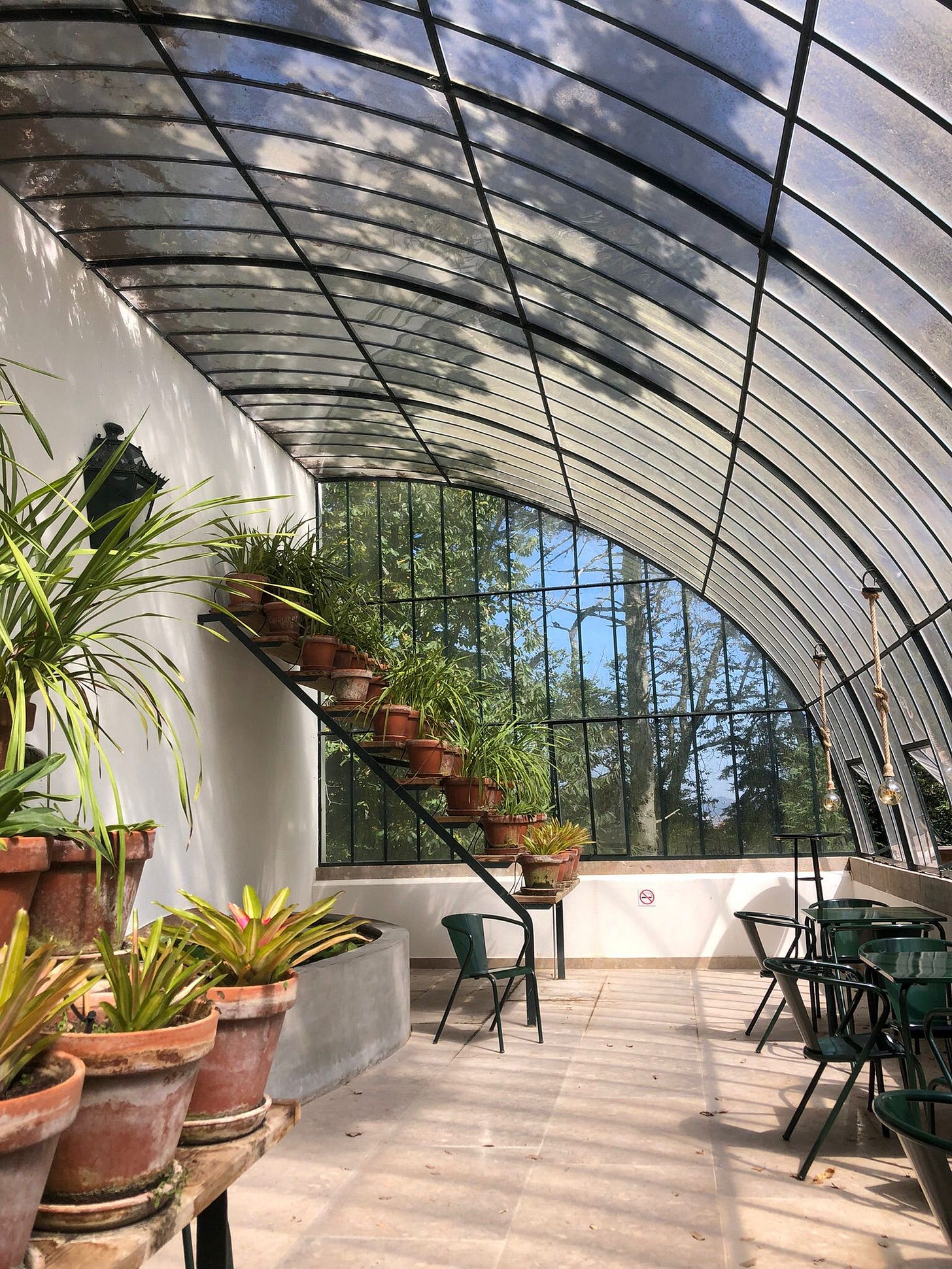
'contemplated how natural metaphors in writing feel flat, disrespectful even, in the midst of ongoing ecological collapse and genocide.' you just summarised exactly how I feel. I loved reading this piece, truly <3
Also, love to hear you're interested in degrowth, definitely check out Jason Hickel's writing or podcast features if you haven't yet. And "Half Earth Socialism" is a great book which describes methods for combining degrowth with direct democracy.